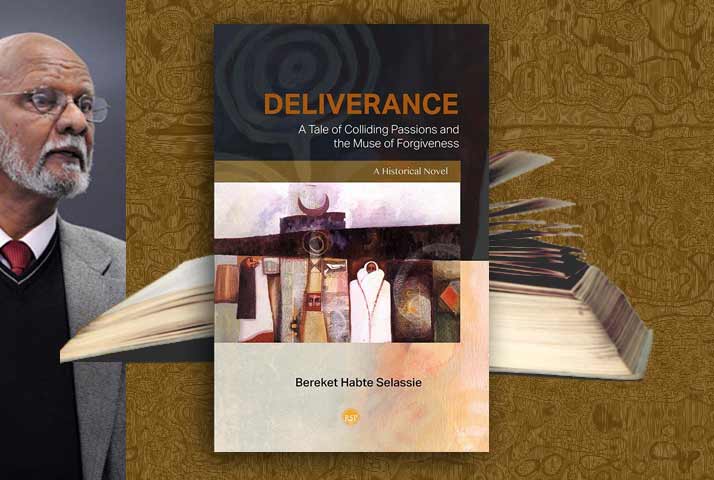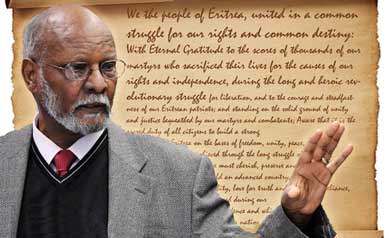Horn of Africa: A Unity Deferred: Between Memory and Possibility

The Horn of Africa remains one of the world’s most fragile political landscapes. State legitimacy is contested, nation-building is stalled or unraveling, and war routinely eclipses peace. Ethiopia and Sudan, its two largest states, are engulfed in civil war and political upheaval. Somalia continues to fracture, with little more than nominal central authority. Eritrea and Djibouti, often labeled “stable,” are only so by the region’s diminished metrics. Ironically, Somaliland—the most coherent and functional polity—remains denied international recognition. IGAD, though effective on paper, is paralyzed in practice. It is hamstrung by political capture, donor dependency, and a lack of enforcement mechanisms.
The East African Contrast
This paradox demands deeper inquiry. Unlike its East African neighbors, why has the Horn failed to forge a durable regional identity or collective security framework? Kenya, Tanzania, and Uganda—the pillars of the East African Community (EAC)—have built shared institutions, harmonized trade policies, and cultivated regional cohesion. Swahili plays a central role: spoken by over 90 percent of Tanzanians, 80 percent of Kenyans, and 70 percent of Ugandans, it anchors everyday communication. English facilitates elite and bureaucratic exchange.
Linguistic unity, while valuable, is no guarantor of regional integration. If it were, the Arab League would rank among the world’s most cohesive blocs. The European Union, despite recognizing 24 official languages across a continent with over 60, has built its strength on institutional design rather than linguistic homogeneity.
What distinguishes the EAC is not simply a common tongue. It is a purposeful architecture of cooperation, anchored in cross-border infrastructure, deepening economic interdependence, and a political ethos that favors stability over zero-sum rivalry.
A Crisis of Imagination
The Horn of Africa, by contrast, remains fragmented, mistrustful, and volatile. Historical grievances and strategic myopia continue to eclipse the promise of regional solidarity. Its politics are burdened by unresolved conflicts and a persistent inability to convert shared pain into common purpose.
History offers both a mirror and a warning. The Horn mounted some of the fiercest resistance to Western colonization: the Mahdist revolt in Sudan (1881–1899), Ras Alula’s victory at Dogali (1887), Menelik II’s triumph at Adwa (1896), Sayyid Mohammed Abdullah Hassan’s defiance in Somalia (1899–1920), and Bahta Hagos’s uprising in Eritrea (1894). These were not isolated moments. They were expressions of civilizational pride and strategic awareness.
Yet resistance remained divided and localized. Emperor Yohannes IV’s call for unity with the Mahdist Khalifa fell on deaf ears. The Khalifa demanded religious conversion first, as if faith alone could shield the non-Western world from conquest. He surrendered pragmatism to sectarian dogma. The result was disunity, colonial partition, and the erosion of collective strength.
Colonial Fragmentation and Its Aftermath
Colonialism redrew borders and arrested the organic development of regional identity. Unlike East Africa, dominated mainly by Britain, the Horn was carved up by Britain, France, Italy, and Ethiopia—an empire in its own right. This patchwork of colonial and imperial rule entrenched fragmentation and stifled the emergence of a shared consciousness. Ethnic segmentation, religious polarization, and economic dependency became structural features. Post-independence governments inherited these divisions and often deepened them through authoritarianism, militarization, and patronage. Eritrea was meant to transcend these all-too-familiar malaises, yet it has, thus far, retraced the same path—led by a regime still captive to its liberation-era ethos and unwilling to heed the hard-earned lessons of its neighbors.
Uniquely, the Horn’s intellectual and cultural life was not shaped by European languages to the same extent as other postcolonial regions. Instead, deep-rooted traditions in Ge’ez, Amharic, Tigrinya, Somali, Arabic, and others sustained civilizational continuity. Djibouti is the lone exception, where French dominates. Elsewhere, indigenous languages preserved memory and identity, even as political institutions faltered.
Dysfunction and the Somaliland Paradox
The legacy of fragmentation endures. Group identity routinely eclipses national cohesion, and national interests rarely converge toward regional stability. Some elites exploit divisions. External powers manipulate fault lines. Those committed to principled change are sidelined and rendered irrelevant. There is no collective security pact, no shared doctrine, and no unifying strategic vision. The Horn remains a theater of proxy wars, insurgencies, and militarized borders.
Economically, the region is under-integrated. Trade barriers, currency fragmentation, and poor infrastructure stifle growth and widen inequality. Intra-regional trade accounts for less than 10 percent of total commerce—far below the continental average. Functional but unrecognized Somaliland is locked out of international finance and development partnerships. Dysfunctional recognized states continue to receive aid with little accountability. This perverse calculus rewards dysfunction and punishes competence. The absence of consequence has contributed to the kakistocracy that defines the region—a rule by the least capable, incentivized by impunity.
At its core, the Horn suffers from a deficit of political imagination. An outdated, zero-sum ethos prevails. The success of one group is seen as a threat to another. This mindset obstructs the common good and undermines regional solidarity.
Somaliland’s paradox is a warning. It forces the region to ask: What makes a state legitimate? What makes a nation whole? Why does the international system privilege form over function in a region where both are desperately needed? Form ought to follow function. Yet here, function is subordinated to form.
Toward a New Ethic
The Horn of Africa is not inherently doomed. Its civilizational legacies run deep. Its geography is strategically vital. Its peoples are remarkably resilient. Yet without a shared identity, without enlightened self-interest, and without a reimagining of political legitimacy, the region risks remaining mired in squandered alliances and fractured solidarities.
This is a region of distinction, home to one of only two African nations never colonized: Ethiopia. The other, Liberia, retained its independence through American protection, having been founded in the 1820s by the American Colonization Society as a refuge for formerly enslaved people. Ethiopia, by contrast, defended its sovereignty on its own terms, forging a legacy of resilience and self-determination.
If Ethiopia can rise to fulfill the promise inscribed in its historical arc and embody the leadership and unity its legacy demands, the entire Horn of Africa could begin to blossom. The region would no longer be defined by fragility. It would be animated by agency, cooperation, and renewal.
Yet smaller nations in the Horn need not wait for Ethiopia or Sudan to chart the course. By prioritizing economic development and regional and global trade, they could lead by example and help shape a more integrated future. Eritrea holds potential. But not under the grip of an aging autocrat who is increasingly becoming a shell of his former self, detached from the aspirations of his people and the possibilities of regional renewal. The sooner Eritreans find a responsible and peaceful path to transition beyond Isaias Afwerki’s rule, the better it will be for Eritrea and for the Horn of Africa as a whole.
What the region needs from Ethiopia is not an Amhara Ethiopia, a Tigrayan Ethiopia, an Oromo Ethiopia, a Somali Ethiopia, or an Afari Ethiopia. It needs a united Ethiopia—one where every citizen stands equal in individual dignity and shares fully in collective belonging. The same imperative applies to Sudan. Unity rooted in justice, not identity, is the foundation for lasting peace and regional renewal.
Imagine the transformative power of 135 million free Ethiopians and 51 million free Sudanese, united not by ethnic or religious silos but by a shared fraternity and a genuine sense of national belonging. Such unity would not only heal internal divisions. It would also radiate outward, offering the Horn of Africa a living model of inclusive strength and principled leadership.
The solution begins with humility. No single group, leader, or ideology holds a monopoly on truth or salvation. What is needed is a new modus operandi that empowers communities, devolves power, and ensures participation is both meaningful and consequential.
A renewed ethic of fraternity and solidarity must take root to foster trust and a genuine sense of belonging among the peoples of the Horn. Their suffering, whether from war, displacement, or natural calamities, could be met with moral clarity and collective resolve. It could serve to strengthen the fragile resurgence of human dignity and the hope for a shared future.
Only through such a reimagining can the region break free from its cycle of fragmentation and realize the unity that history once deferred. In this new mindset, leadership becomes a path to service rather than a gateway to power. Politics becomes about the people. Of the people, by the people, for the people.
_____
N.B. I’ll be sharing my reflections every Sunday. If you share similar convictions, feel free to reach out via email: weriz@yahoo.com




Awate Forum